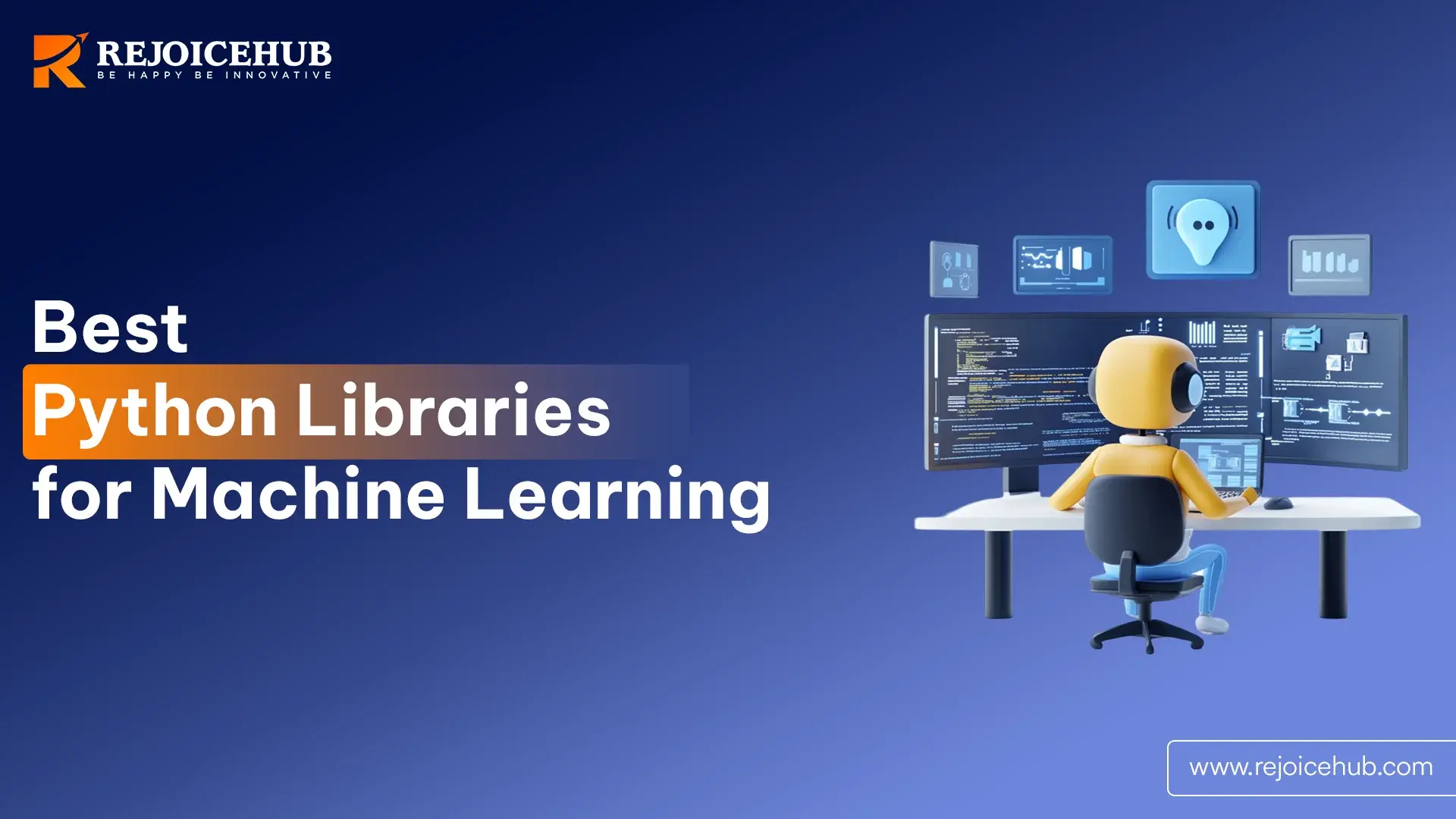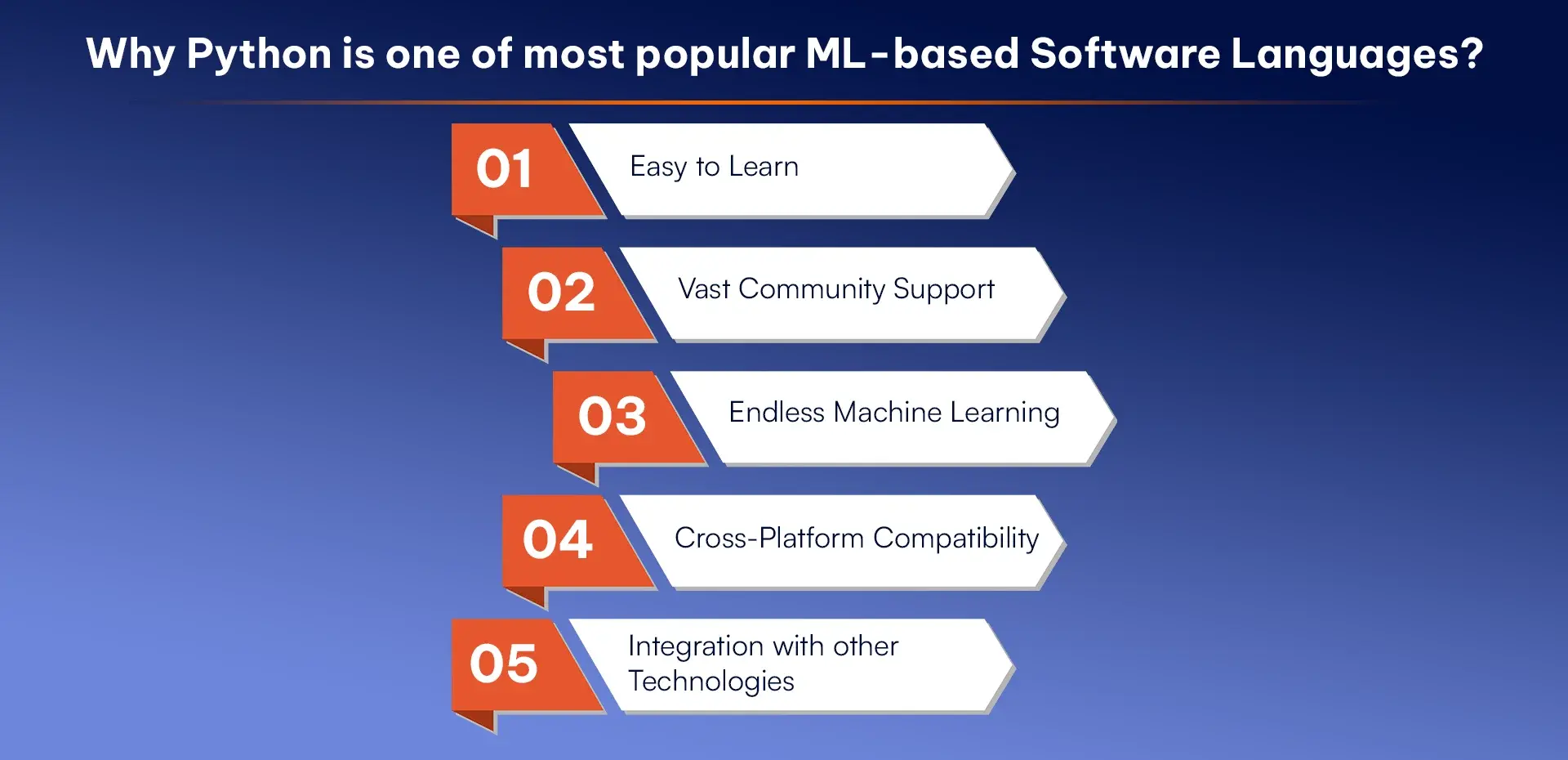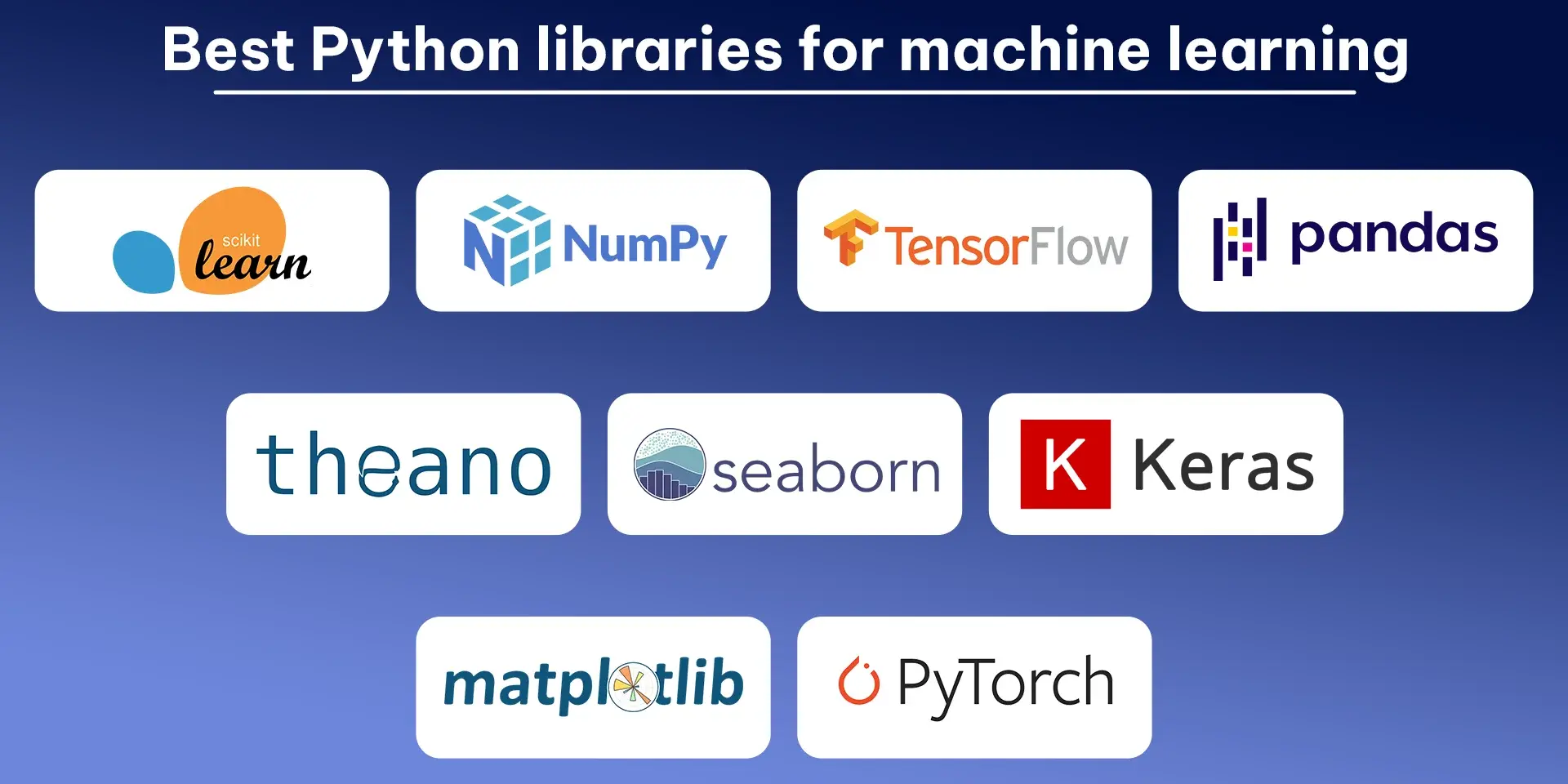
"I want to learn more about machine learning."
This is a common thing to hear from today’s developers. But do you know where to start? If not, then we’ve got good news. You do not have to build everything from scratch. You can speed up the process and focus on what truly matters with the right Python libraries. Imagine you’re building a chatbot, a recommendation system or even a self-driving car. Instead of coding complex algorithms yourself, you can use Python libraries that already have everything you need. They make machine learning easy, fast and efficient.
Quick Summary
In this blog, we will go through the best Python libraries for Machine Learning, how they work and why programming libraries Python is the backbone of AI innovation. Ready to learn more about it? Let's go!
What is Python Library?
A Python library is a collection of prewritten code. It helps developers perform specific tasks without repeating the process. Think of it as a ready-made toolkit. Example: If you want to work with data, you use Pandas. If you want to create AI models, you use TensorFlow or PyTorch. Instead of writing thousands of lines of code, you import a Python machine learning library and get the work done faster.These programming libraries Python are widely used in machine learning, data science and artificial intelligence. They make coding efficient, error-free and super smooth.
Why Python is one of most popular ML-based Software Languages?
Python leads machine learning for a reason. It is simple, powerful and comes with Python libraries. Python library handles everything from data cleaning to deep learning. Here is why ML experts love Python libraries used to initiate machine learning:

1. Easy to Learn
Python’s simple syntax makes it a beginner friendly. It reads like English by reducing complexity. Even non-programmers can quickly understand and start coding. This makes learning effortless and fun.
2. Vast Community Support
There are millions of developers who contribute to Python. It provides endless tutorials, forums and open-source projects. If you have a problem, solutions are always available. This makes troubleshooting easier and learning faster.
3. Endless Machine Learning
Python has many machine learning libraries like TensorFlow, Scikit-learn and PyTorch. These pre-built tools simplify AI development. It saves time and effort along with making sure that performance and accuracy is high.
4.Cross-Platform Compatibility
Python works on Windows, macOS and Linux without modification. This flexibility allows developers to write code once and run it anywhere. This makes development seamless and hassle-free.
5. Integration with other Technologies
Python easily connects with cloud computing and big data. It even connects with databases and web applications. It integrates smoothly with tools like AWS, Google Cloud and SQL. This enhances AI capabilities. With these advantages, Python has become the #1 language of AI and data science.
Best Python Libraries for Machine Learning
Python has many helpful libraries for AI development. It offers a wide range of machine learning libraries. Some tools are good for handling data. Some are good for crunching numbers and some boost mathematical calculations for complex models. There are also user-friendly tools for building deep learning applications. This simplifies AI development. Let's look further at the top ones.

1. Scikit-learn
Scikit-learn is for machine learning in a Python library. This tool is for beginners and professionals. This offers numerous tools and algorithms. It provides:
- Pre-built ML models like classification, regression and clustering.
- Feature selection, model evaluation and hyperparameter tuning.
- Compatibility with NumPy and Pandas for smooth data handling. You should use Scikit-learn if you are starting with ML.
2. NumPy
NumPy is for numerical computing in Python. It provides important tools for array manipulation and mathematical operations. It supports:
- Efficient storage and handling of large datasets.
- Mathematical functions for statistics and linear algebra.
- Integration with ML libraries like TensorFlow and Scikit-learn.
- Working with complex datasheets might be tough without NumPy.
3. TensorFlow
TensorFlow is a machine learning library for deep learning. This is developed by Google. It offers:
GPU acceleration for fast training of neural networks.
- Support for building custom ML models.
- Tools for deploying models on mobile and cloud platforms If deep learning is your goal, then TensorFlow should be there in your toolkit.
4. Pandas
Pandas is an advanced Python library for data manipulation. This offers powerful tools for data analysis, cleaning and transformation. It provides:
- Data structures like DataFrames and Series for handling large datasets.
- Functions for cleaning, filtering and analyzing data.
- Seamless integration with ML and visualization libraries. Managing data in ML would be tough without Pandas.
5. Theano
Theano is a deep learning library in Python that improves mathematical computations. This enhances the performance for complex machine learning models. It offers:
- Efficient handling of multi-dimensional arrays.
- Speed enhancement for large scale ML models.
- Compatibility with GPU acceleration. Though TensorFlow and PyTorch are more popular today, Theano still holds value in some ML applications.
6. Seaborn
Seaborn is a Python library. It creates attractive visualizations built on top of Matplotlib. This provides enhanced graphics and simplicity. It offers:
- Functions of high level for plotting complex graphs.
- Heatmaps, histograms and scatter plots that are designed beautifully.
- Easy integration with Pandas for quick data insights. Great visualizations can make your ML models easier to understand.
7. Keras
Keras is a user-friendly deep learning API for Python. It runs on TensorFlow. It simplifies the creation and training of neural networks. It provides:
- Flexible and simple model building tools.
- Support for both CPUs and GPUs.
- Models that are pre-trained for quick AI development. Keras is perfect if you want an easy way to implement neural networks.
8. Matplotlib
Matplotlib is the OG Python library for creating visualizations. This provides comprehensive tools for plotting graphs and charts efficiently. It offers:
- Customizable 2D and 3D graphs.
- Interactive plots for exploratory data analysis.
- Seamless integration with NumPy and Pandas. If you want visual insights into your ML data, then this tool is a must have.
9. PyTorch
PyTorch is a framework for open-source deep learning. It is developed by Meta. It provides tools for building and training neural networks in Python. It offers:
- Advanced computation graphs for real time ML adjustments.
- Strong GPU acceleration for faster model training.
- Support from the ML research community. This is a serious competitor to TensorFlow. It is widely used in research and production.
Also Read: Different Types of Machine Learning
What are the most popular Python Libraries for Machine Learning?
Below is the list of Python libraries that are commonly used:
- Scikit-learn: It is best for traditional ML models.
- TensorFlow: It is best for deep learning.
- PyTorch: It is best for AI research and production.
- Keras: It is best for easy neural network development.
- Pandas: It is best for data analysis and preprocessing.
- NumPy: It is best for numerical computations.
- Matplotlib and Seaborn: It is best for data visualization Each Python machine learning library has its strengths. Together, they make ML development smoother.
Conclusion
Machine learning is evolving faster. But Python remains the best when it comes to AI development. You can build powerful AI models without starting from scratch with the help of the right machine learning libraries. If you own a business or a professional person looking for expert ML support, then RejoiceHUB LLP offers customizable solutions that meet your needs. We help you harness the power of ML efficiently from predictive analysis to AI based automation. So, whether you are starting or scaling your ML projects, using these Python libraries used to initiate machine learning can make all the difference.
Frequently Asked Questions
Which Python libraries for ML are best for beginners?
Scikit-learn and Pandas are best for beginners.
What to choose- TensorFlow or PyTorch?
TensorFlow is for the production library and PyTorch is for AI research.
Why is Python popular for machine learning?
Python is popular for its simplicity, vast community support and numerous pre-built libraries.
Can I use multiple machine learning libraries together?
Yes. Most machine learning projects use libraries together. Like Pandas for data handling, Scikit-learn for modeling, and Matplotlib for visualization.